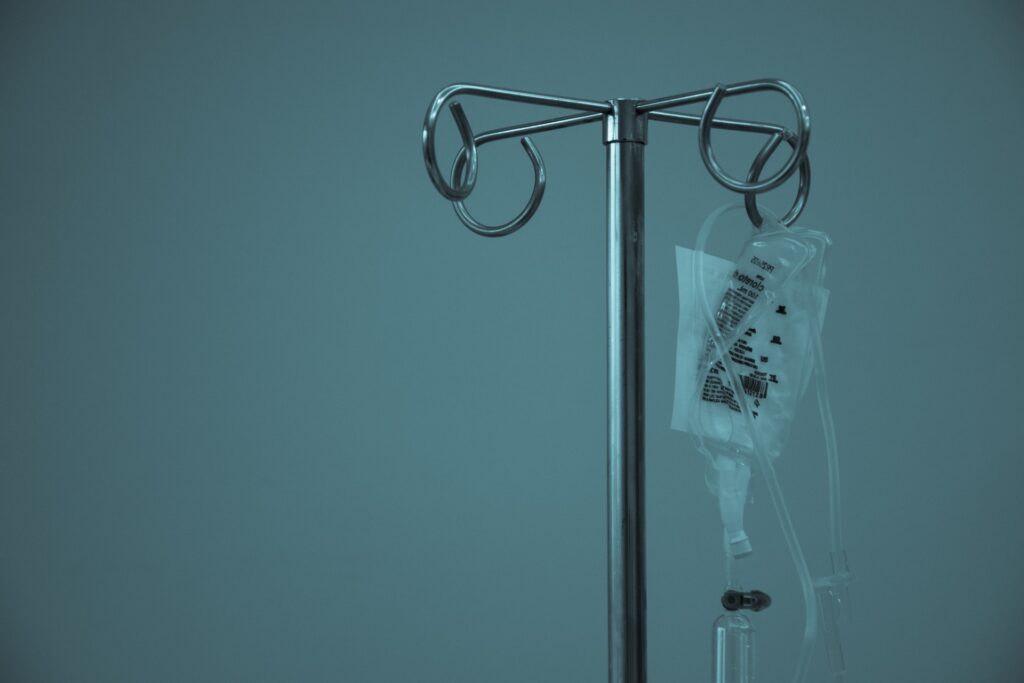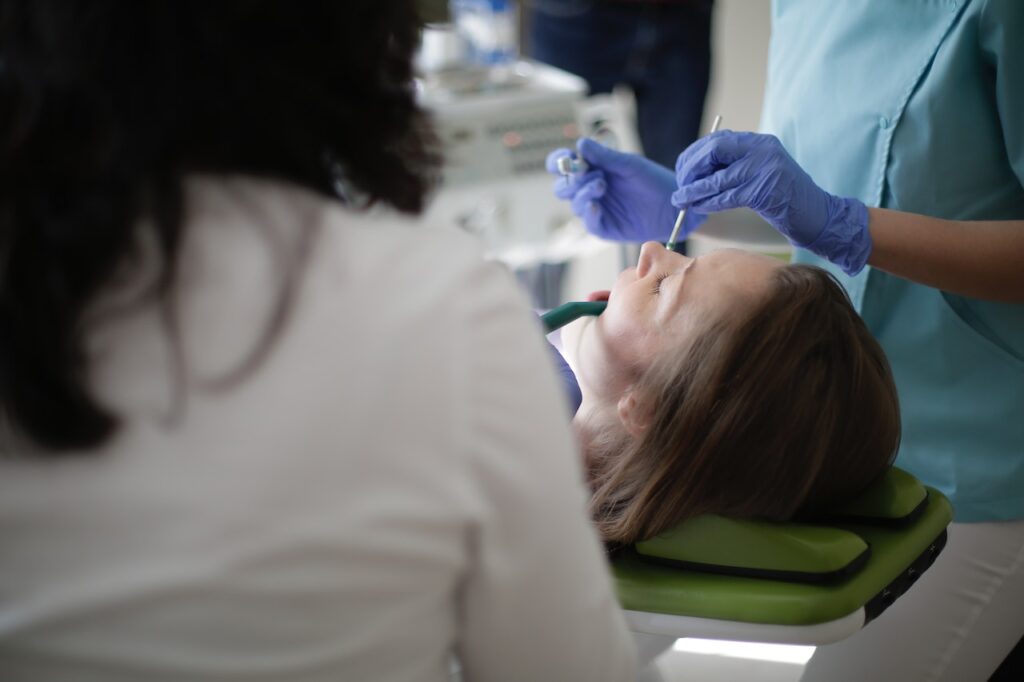Urgent care centers have become a popular alternative to emergency rooms for non-life-threatening medical issues. However, many people are concerned about the cost of urgent care, especially if they do not have insurance. One common question is whether urgent care centers will bill patients later if they do not have insurance.
The answer is not straightforward. Some urgent care centers will bill patients later if they do not have insurance, while others require payment upfront. It depends on the individual center’s policies and procedures. However, patients without insurance should be aware that they may be responsible for the full cost of their visit, which can be significantly higher than with insurance.
Key Takeaways
- Urgent care centers may bill patients later if they do not have insurance, but it depends on the center’s policies.
- Patients without insurance may be responsible for the full cost of their visit, which can be significantly higher than with insurance.
- It is important for patients to understand their options for payment and potential financial assistance before seeking care at an urgent care center.
Understanding Urgent Care and Insurance
Urgent care centers, facilities, and clinics are becoming increasingly popular as a more convenient and cost-effective alternative to emergency rooms for non-life-threatening medical issues. However, many people are unsure of how urgent care centers handle insurance and billing.
Most urgent care centers accept various forms of health insurance, including private insurance, Medicare, and Medicaid. However, it is always a good idea to check with your insurance provider to confirm coverage before visiting an urgent care center.
For those without insurance, urgent care centers typically offer self-pay options with transparent pricing. Some centers may also offer discounts or payment plans for those who need financial assistance.
It is important to note that urgent care centers may bill patients later for services not covered by insurance or for co-pays and deductibles. Patients should always review their bills carefully and contact the urgent care center or their insurance provider with any questions or concerns.
In summary, urgent care centers provide a convenient and affordable option for non-life-threatening medical issues. Patients should always confirm their insurance coverage and review their bills carefully to ensure accurate billing.
The Cost of Urgent Care Without Insurance
Urgent care facilities are often used as an alternative to emergency rooms for non-life-threatening medical issues. These facilities can offer quicker and more cost-effective care than emergency rooms, but what happens when you don’t have insurance?
The cost of urgent care without insurance can vary depending on the facility and the services provided. However, it is generally more affordable than a visit to the emergency room. According to a study by the National Center for Health Statistics, the average cost of an emergency room visit in 2020 was $1,734. In comparison, the average cost of an urgent care visit without insurance was $150-$200.
Some urgent care facilities offer a self-pay or cash option for those without insurance. This means that patients can pay for their visit upfront without involving insurance companies. These self-pay options can often be more affordable than using insurance, as insurance companies negotiate rates with healthcare providers.
It is important to note that the cost of urgent care without insurance can still be a burden for those with limited financial resources. However, many urgent care facilities offer payment plans or financial assistance programs to help make healthcare costs more manageable.
In conclusion, urgent care without insurance can be a cost-effective option for non-life-threatening medical issues. While the cost can still be a burden for some, self-pay and financial assistance options may be available to help make healthcare costs more manageable.
Billing Process in Urgent Care
When it comes to billing in urgent care, the process can vary depending on the facility and the patient’s insurance coverage. Generally, urgent care centers will bill the patient’s insurance provider directly, but there are some instances where the patient may be billed directly.
If a patient does not have insurance, urgent care centers will typically require payment at the time of service. However, some centers may offer payment plans or financial assistance programs to help patients cover the cost of their care.
It is important to note that some urgent care centers may engage in balance billing, which is when a provider bills a patient for the difference between their billed charges and the amount their insurance provider paid. This practice is not allowed in some states and is heavily regulated in others.
Under the No Surprises Act, patients are protected from surprise medical bills and balance billing. This means that patients cannot be charged more than their in-network cost-sharing amount for emergency services or for services received from out-of-network providers at an in-network facility.
If a patient receives a surprise medical bill or believes they have been balance billed unfairly, they can utilize the patient-provider dispute resolution process. This process allows patients to file a complaint with their insurance provider or the state regulatory agency to resolve the dispute.
Overall, it is important for patients to understand the billing process in urgent care and to be aware of their rights and protections under the law.
Urgent Care Vs Emergency Rooms
When it comes to seeking medical care, people often confuse urgent care centers with hospital emergency rooms. Although both offer immediate medical attention, there are significant differences between the two. Urgent care centers are designed to provide medical care for non-life-threatening illnesses and injuries, while emergency rooms are equipped to handle life-threatening conditions.
Urgent care centers are typically open seven days a week, with extended hours, making them a convenient option for those who cannot wait for a primary care physician appointment. They are staffed with physicians, nurse practitioners, and physician assistants who can diagnose and treat a variety of illnesses and injuries, including cuts, sprains, and minor infections. Urgent care centers also offer diagnostic services, such as X-rays and blood tests.
Emergency rooms, on the other hand, are equipped to handle life-threatening conditions, such as heart attacks, strokes, and severe injuries. They are staffed with emergency medicine physicians and nurses who are trained to handle critical situations. Hospital emergency rooms are open 24/7 and have access to advanced medical technology, including CT scans and MRI machines.
One of the significant differences between urgent care centers and emergency rooms is the cost. Urgent care centers are typically less expensive than emergency rooms, making them an attractive option for those without insurance. However, it’s essential to note that urgent care centers may still bill patients later, even if they do not have insurance.
In summary, urgent care centers are a convenient and cost-effective option for non-life-threatening illnesses and injuries. However, if you’re experiencing a life-threatening condition, it’s crucial to seek medical attention at a hospital emergency room.
Common Treatments and Procedures in Urgent Care
Urgent care centers offer a wide range of medical services to patients who need immediate medical attention. Some of the most common treatments and procedures performed in urgent care centers include:
Minor Illnesses
Urgent care centers are equipped to handle minor illnesses such as colds, coughs, and flu symptoms. They can also treat urinary tract infections (UTIs) and fever. Patients can expect to receive a thorough examination, diagnosis, and treatment plan.
Cuts and Animal Bites
Urgent care centers can treat cuts and animal bites that require stitches or other medical attention. They can also provide tetanus shots if necessary.
Allergic Reactions
Urgent care centers can treat allergic reactions, including hives, swelling, and breathing difficulties. They can provide medications such as epinephrine and antihistamines to alleviate symptoms.
Broken Bones and Sprains
Urgent care centers can diagnose and treat minor fractures and sprains. They can provide imaging services such as X-rays to diagnose the injury and provide a splint or cast to immobilize the affected area.
Immunizations
Urgent care centers can provide immunizations for patients who need them. This includes flu shots, tetanus shots, and other vaccinations.
Procedures
Urgent care centers can perform a variety of procedures, including minor surgical procedures and diagnostic tests. They can also provide IV fluids and medications.
In summary, urgent care centers are an excellent option for patients who need immediate medical attention for minor illnesses and injuries. They offer a wide range of services, including diagnosis, treatment, and procedures. Patients can expect to receive high-quality care from knowledgeable and experienced medical professionals.
Insurance Coverage and Out-of-Network Issues
For individuals who do not have insurance coverage, the cost of an urgent care visit can be quite expensive. However, even those who do have insurance may still face unexpected bills if they visit an out-of-network provider.
When it comes to insurance coverage, it is important to understand the difference between in-network and out-of-network providers. In-network facilities have contracted with your insurance plan to provide services at a discounted rate. Out-of-network facilities, on the other hand, do not have a contract with your insurance plan and may charge higher rates.
If you visit an out-of-network facility, your insurance plan may still cover some of the cost, but you will likely be responsible for paying a higher portion of the bill. It is important to check with your insurance plan to understand their policies regarding out-of-network providers.
In addition to understanding your insurance plan’s policies, it is also important to research the urgent care facilities in your area to find out which ones are in-network. This can help you avoid unexpected bills and ensure that you are receiving the best possible care at the most affordable price.
For those who do not have insurance coverage, some urgent care facilities offer discounted rates for self-pay patients. It is important to ask about these options when scheduling your appointment.
Overall, it is important to be aware of your insurance coverage and the policies of the urgent care facility you plan to visit. Doing your research ahead of time can help you avoid unexpected bills and ensure that you receive the care you need at a price you can afford.
Financial Assistance and Payment Options
Urgent care centers offer financial assistance and payment options to patients who do not have insurance. These options vary depending on the urgent care center and the patient’s financial situation. Patients who are uninsured or underinsured can take advantage of these options to reduce their out-of-pocket expenses.
One option is to apply for financial assistance programs offered by the urgent care center. These programs are designed to help patients who cannot afford to pay for their medical bills. Patients can apply for these programs by filling out an application and providing proof of income. The urgent care center will review the application and determine if the patient qualifies for financial assistance. If approved, the patient may receive a discount on their medical bill or have their bill waived entirely.
Another option is to set up a payment plan. Patients can work with the urgent care center to set up a payment plan that fits their budget. The payment plan may allow the patient to pay their medical bill in installments over a period of time. This can help the patient avoid the financial burden of paying the entire bill at once.
For patients who have insurance, the urgent care center may accept Medicare, Medicaid, Tricare, or Indian Health Services. These insurance programs may cover some or all of the patient’s medical bill. Patients should check with their insurance provider to determine what is covered and what their out-of-pocket expenses will be.
In summary, urgent care centers offer financial assistance and payment options to help patients who do not have insurance or who are underinsured. Patients can apply for financial assistance programs, set up a payment plan, or use insurance programs like Medicare, Medicaid, Tricare, or Indian Health Services to reduce their out-of-pocket expenses.
Understanding Your Medical Bills
When you visit an urgent care clinic without insurance, it is important to understand how your medical bills will be calculated and what charges you may incur. Medical bills can be complex and confusing, but having a basic understanding of the billing process can help you make informed decisions and avoid unexpected expenses.
Deductibles and Copays
If you have insurance, you may be responsible for paying a deductible before your insurance coverage kicks in. A deductible is the amount you have to pay out of pocket before your insurance company starts paying for your medical expenses. Copays are another type of cost-sharing that you may be responsible for. A copay is a fixed amount that you pay for a medical service, such as a doctor visit or prescription medication.
Coinsurance
Coinsurance is another type of cost-sharing that you may encounter when you receive medical care. Coinsurance is a percentage of the total cost of a medical service that you are responsible for paying. For example, if you have a coinsurance of 20%, you would be responsible for paying 20% of the total cost of a medical service, while your insurance company would pay the remaining 80%.
Good Faith Estimate
Before you receive medical services, you may be able to request a good faith estimate from your healthcare provider. A good faith estimate is an estimate of the total cost of your medical services, including any deductibles, copays, and coinsurance that you may be responsible for. This can help you plan for your medical expenses and avoid unexpected bills.
Reviewing Your Medical Bills
When you receive your medical bills, it is important to review them carefully to make sure that they are accurate and that you are not being overcharged. You should also check to see if your insurance company has paid its portion of the bill. If you have any questions or concerns about your medical bills, you can contact your healthcare provider or insurance company for assistance.
Overall, understanding your medical bills can help you make informed decisions and avoid unexpected expenses. By knowing what to expect and reviewing your bills carefully, you can take control of your healthcare costs and avoid financial surprises.
When to Choose Urgent Care
Urgent care centers are medical facilities that provide immediate medical attention to patients with non-life-threatening medical conditions. Urgent care centers are an excellent choice for patients who need medical treatment but cannot wait for an appointment with their primary care physician.
Urgent care centers offer a wide range of healthcare services, including medical care for minor illnesses and injuries, diagnostic testing, and prescription medication. Patients can receive medical treatment for conditions such as flu, fever, colds, cuts, and bruises. Urgent care centers also provide medical care for more severe medical conditions like stroke or heart attack.
Patients who choose urgent care centers over emergency rooms can save time and money. Urgent care centers typically have shorter wait times than emergency rooms, and they are less expensive. Patients who do not have health insurance can receive medical care at urgent care centers without worrying about receiving a bill later.
However, patients should be aware that urgent care centers are not a substitute for primary care providers. Patients should continue to see their primary care physician for routine medical care and preventive healthcare services. Additionally, patients with severe medical conditions should seek medical attention at an emergency room rather than an urgent care center.
In summary, urgent care centers are an excellent choice for patients who need immediate medical treatment for non-life-threatening medical conditions. Patients can save time and money by choosing urgent care centers over emergency rooms. However, patients should continue to see their primary care physician for routine medical care and seek emergency medical attention for severe medical conditions.
Additional Considerations
For those without insurance, it is important to consider additional factors when seeking treatment at an urgent care facility. While many urgent care centers offer affordable prices for those without insurance, there are still potential costs that may arise.
One consideration is the cost of an appointment. Some urgent care centers may charge a flat fee for an appointment, while others may charge based on the services provided. It is important to check with the medical provider beforehand to understand the cost of the appointment.
Another consideration is the cost of any prescriptions that may be prescribed during the visit. Without insurance, the cost of medications can add up quickly. It is important to ask the medical provider for lower-cost alternatives or generic options.
Prior authorization may also be required for certain services, such as radiology or laboratory tests. It is important to check with the medical provider to ensure that prior authorization has been obtained to avoid unexpected costs.
Weekend and extended hours may also come with additional costs. It is important to check with the medical provider to understand any potential additional fees.
According to Debt.org, copayments for urgent care visits can range from $20 to $100. Anesthesiology and other specialized services may also come with additional costs. It is important to check with the medical provider to understand any potential additional fees.
Location can also impact the cost of urgent care visits. According to the Kaiser Family Foundation, the average cost of an urgent care visit can range from $71 to $125 depending on location.
If there are any complaints or concerns about the billing or services received, it is important to contact the urgent care center or medical provider directly to address the issue.
Overall, while urgent care centers can provide affordable and convenient healthcare options, it is important to consider all potential costs and factors before seeking treatment.
Frequently Asked Questions
Can you receive medical treatment at urgent care without insurance?
Yes, urgent care centers typically provide medical treatment to patients regardless of whether they have insurance or not. However, patients without insurance may be required to pay upfront for the cost of their visit.
How much does an urgent care visit typically cost without insurance?
The cost of an urgent care visit without insurance varies depending on the type of treatment needed and the location of the center. On average, a basic urgent care visit can cost between $75 and $250. Additional fees may be charged for lab tests, x-rays, and other services.
Do urgent care centers offer payment plans for those without insurance?
Yes, some urgent care centers offer payment plans for patients without insurance. Patients can typically work with the center’s billing department to set up a payment plan that fits their budget.
What happens if you don’t pay your urgent care bill?
If you don’t pay your urgent care bill, the center may send the bill to a collections agency or take legal action to recover the debt. It’s important to communicate with the center’s billing department if you’re having trouble paying your bill to avoid these consequences.
How does urgent care billing work with insurance?
Urgent care centers typically accept most major insurance plans. Patients with insurance will typically be responsible for their copay and any deductible or coinsurance required by their plan. The center will bill the insurance company directly for the remaining balance.
Are there any government programs that can help cover the cost of urgent care visits for those without insurance?
There are several government programs that can help cover the cost of urgent care visits for those without insurance, including Medicaid and Medicare. Patients can also look into state and local programs that provide financial assistance for healthcare expenses.





